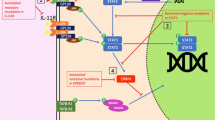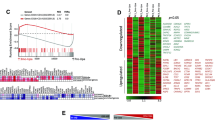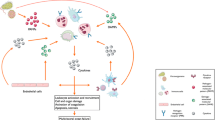Abstract.
Granulocyte colony-stimulating factor (G-CSF) is a cytokine which stimulates the production of neutrophils in the bone marrow and modulates cellular functions of mature neutrophils. Besides neutrophils and their precursors, monocytes are direct target cells of G-CSF action. G-CSF influences monocyte functions in an anti-inflammatory way: The stimulation of monocytes with G-CSF results in an attenuation of LPS-induced release of IL-1β, TNF-α, IL-12 and IL-18.¶ G-CSF exerts its biological functions on neutrophils and monocytes via membrane-bound receptors. Seven different human G-CSF receptor isoforms have been described which are generated by alternative splicing. The physiologic roles of these isoforms and the expression pattern on various cell types are still unknown. The signal transduction pathway of G-CSF receptors involves the activation of JAK tyrosine kinases and STAT transcription factors and the ras/mitogen-activated protein kinase pathway.
Similar content being viewed by others
Author information
Authors and Affiliations
Additional information
Received 12 March 2001; returned for revision 9 July 2001; accepted by M.J. Parnham 10 December 2001
Rights and permissions
About this article
Cite this article
Boneberg, EM., Hartung, T. Molecular aspects of anti-inflammatory action of G-CSF. Inflamm. res. 51, 119–128 (2002). https://doi.org/10.1007/PL00000283
Issue Date:
DOI: https://doi.org/10.1007/PL00000283




